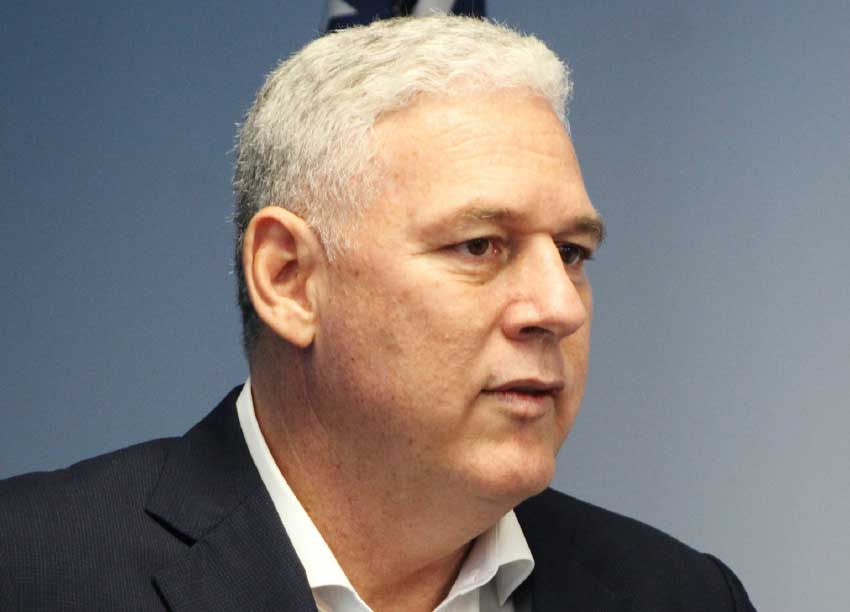GOVERNMENT authorities have taken measures to help hoteliers and other persons involved in the hospitality industry cope with the economic downturn brought about by the COVID-19 crisis.
A number of motions were tabled when the House of Assembly met on Tuesday; and notably, amongst these issues is an initiative undertaken by government to help employers in the tourism sector cushion the ‘economic shocks’ and shortfalls created by the COVID-19 pandemic.

The resolution before parliament sought approval for reduction of the VAT rate on the supply of services for sleeping accommodation in the tourism sector, whether or not this sleeping arrangement is packaged with other hotel services.
“The intention is service that currently attracts a Vat rate of 10% to attract a Vat rate of 7%,” Prime Minister Chastanet said.
“(As) Part of the government’s policy to reform the financing arrangement for tourism institutions, an accommodation fee was introduced as the modality by which destination marketing, management and development could be self-financed,” Chastanet added.
The Prime Minister said the intention was that the SLTA – St. Lucia Tourism Authority would no longer have to rely on central government subventions to finance its operations.
“The proposed reduction in VAT is simply to offset the proposed accommodation fee that will be collected by the accommodation sector,” he added.
“Our primary goal as a government is to assist in minimizing any increase in the price of accommodation on the island, whilst transferring costs associated with destination marketing, management and development to the tourism sector,” Chastanet said.
Noting that government is cognizant of the competitive nature of the tourism sector, Chastanet said, the authorities would not want “to see the attractiveness of Saint Lucia as a tourism destination decline as a result of price increases.”
The prime minster asserted that as the tourism sector continues to develop that the time was right for the destination marketing, management and development component of the tourism sector to be fully financed and managed by the sector.
He noted that this strategy would help to relieve central government expenditure, “while allowing Saint Lucia as a destination to continue to enjoy world class destination marketing, management and development.”
Chastanet added: “It is important to emphasize that the reduction in the VAT rate from 10 % to 7 % is only on the service of the sleeping accommodation and all other assimilated goods and services will continue to attract a Vat rate of 10%. This … is to maintain our competitiveness as a destination.”
Opposition Leader Phillip Pierre contended that it was the larger hoteliers who stand to benefit more from the 10% reduction, while the smaller hoteliers would still have to pay the regular tax rate for the purchase of food and beverages, as well as, restaurants and tour operators.
Pierre opined that in these covid-19 times “it would be necessary to have an overall reduction for all sectors in the tourism industry, since according to him and contrary to government’s prediction the industry is not bound for rebound until 2023.”
He reiterated that the all-inclusive sectors would better benefit from this tax reduction since they offer a full complement of the services identified. He said the only benefit accrued by small hoteliers’ relates to a Vat threshold in the $400,000 annual revenue that was introduced by the former administration “and that’s the benefit they continue to get.”
Parliamentary Representative for Castries South, Dr. Ernest Hilaire also spoke to the timing of this motion, questioning the necessity of such a move at this time. He said a Vat rate is intended to be applicable across board, while government seeks other avenues to bolster the economy.
Tourism Minister Dominic Fedee rebuffed the notion that government was providing relief solely to the large hotels, but rather, he said: “We are trying to balance the scales …because over the past two years or so we have come to this House and we have implemented several revenue measures under the hospitality sector.”
Fedee referred to an increase in the Airport Depart Tax (ADT) from US$25 to a current fee of US$63, stating that the proposed introduction of another tax incentive targeting the airline industry would help boost the economic returns to the country.
He said, “In consideration for the competitiveness of the industry what we are trying to do is in an effort to give the St. Lucia Tourism Authority (SLTA) more dynamism, more budgetary flexibility …is to empower the SLTA to be able to have its own marketing fund.”













